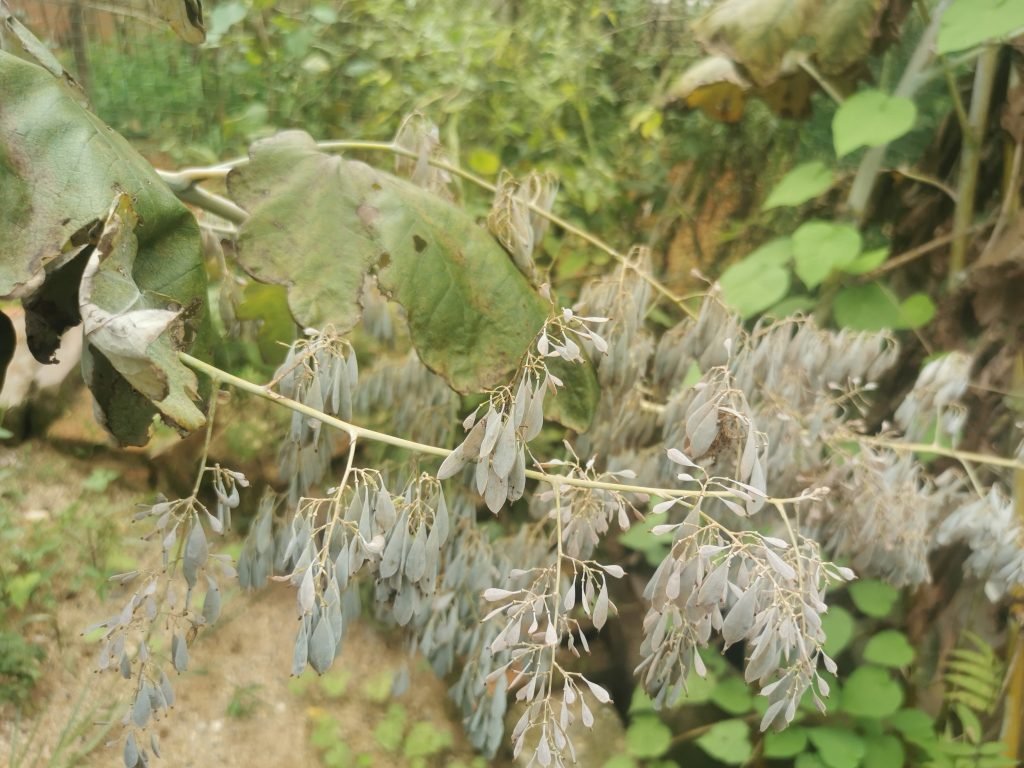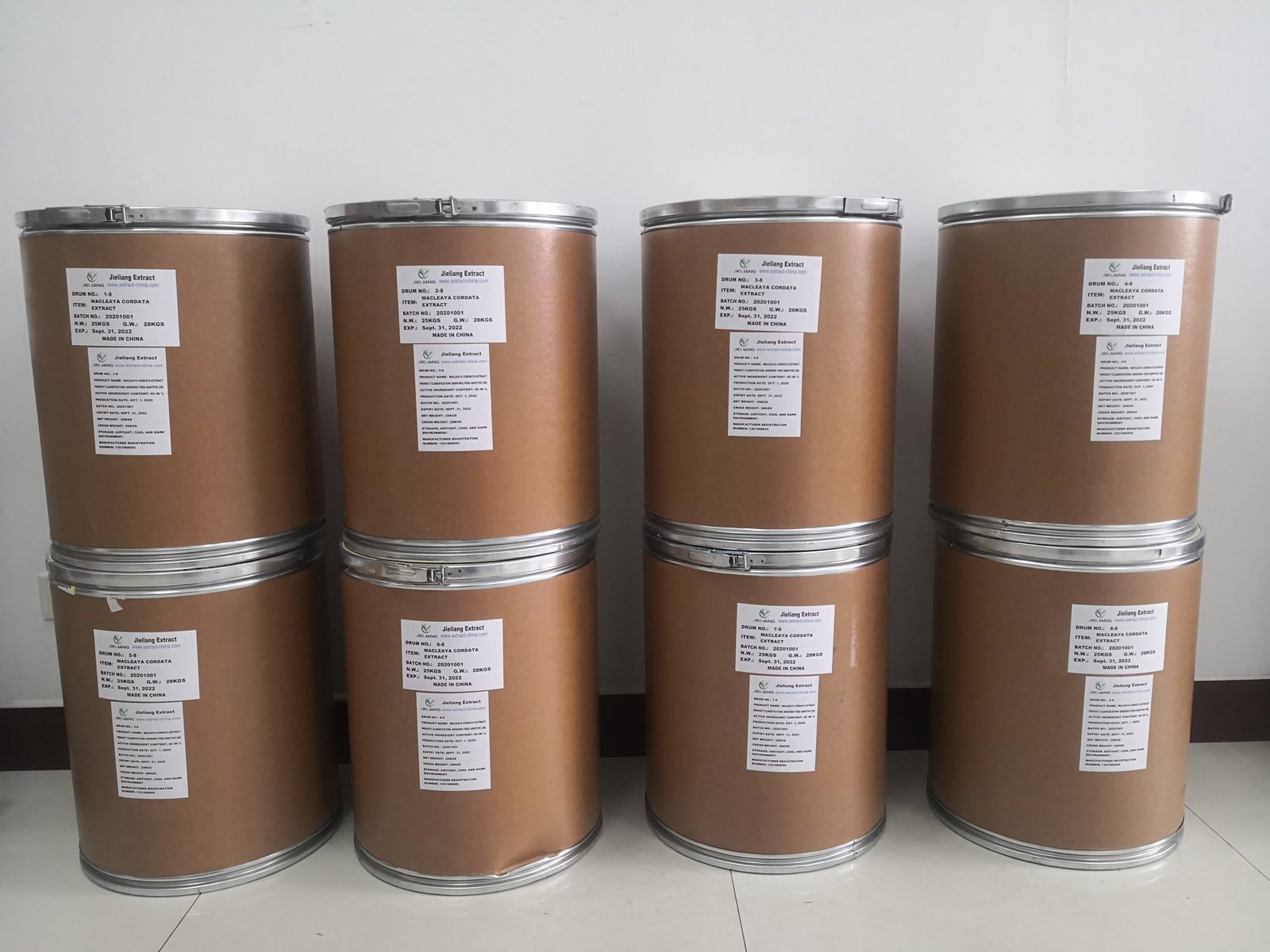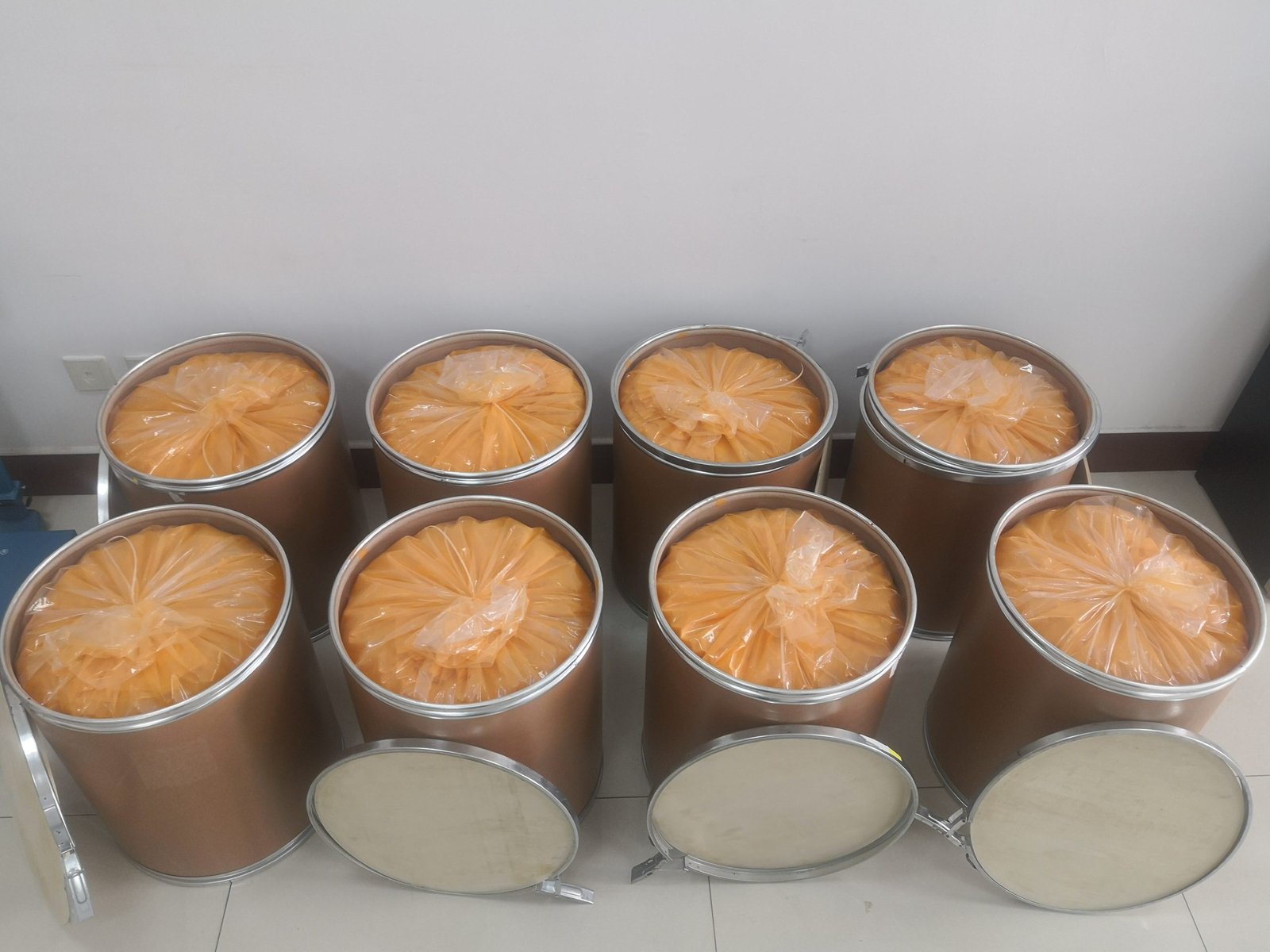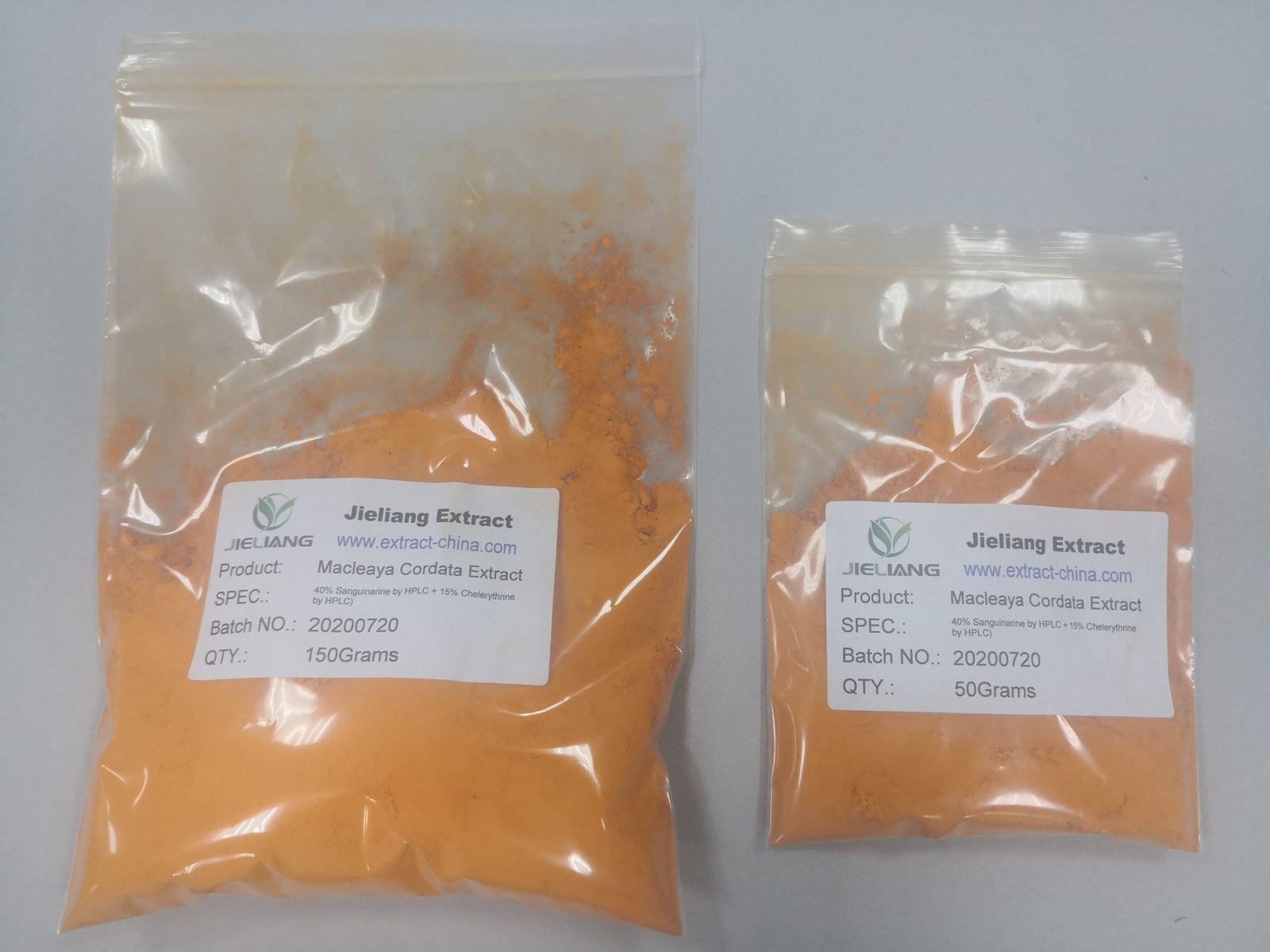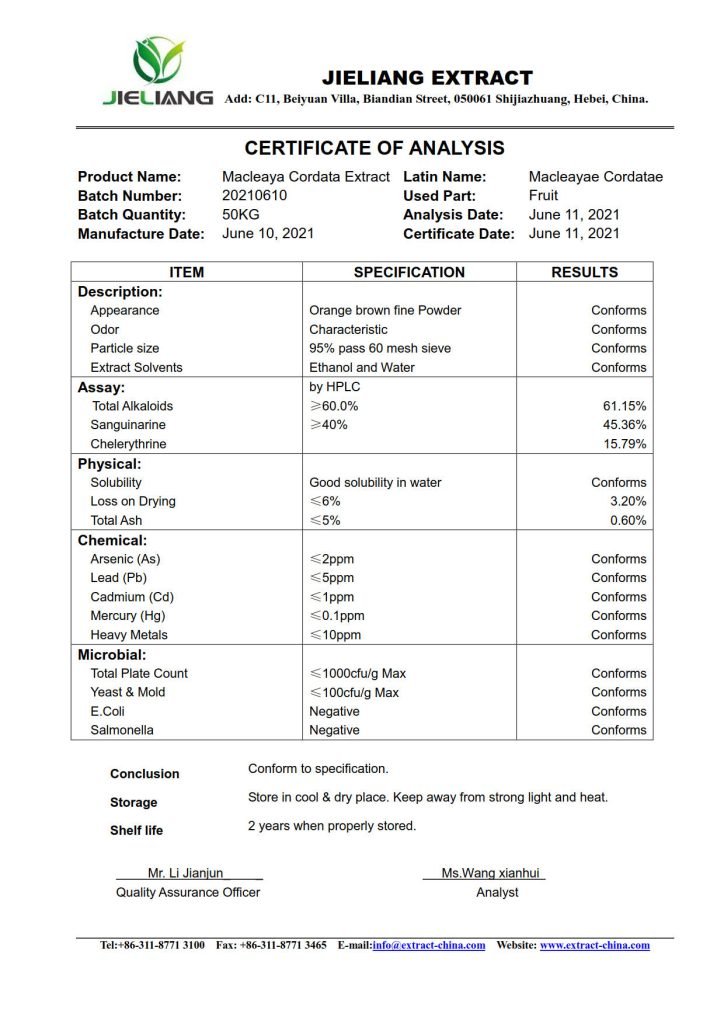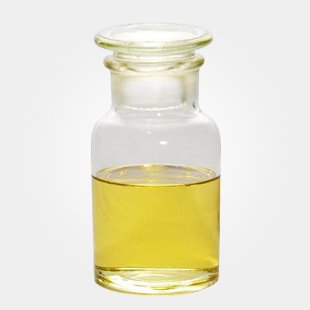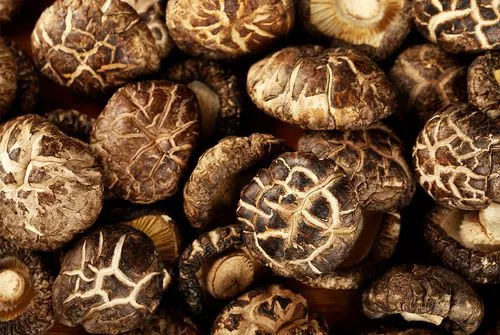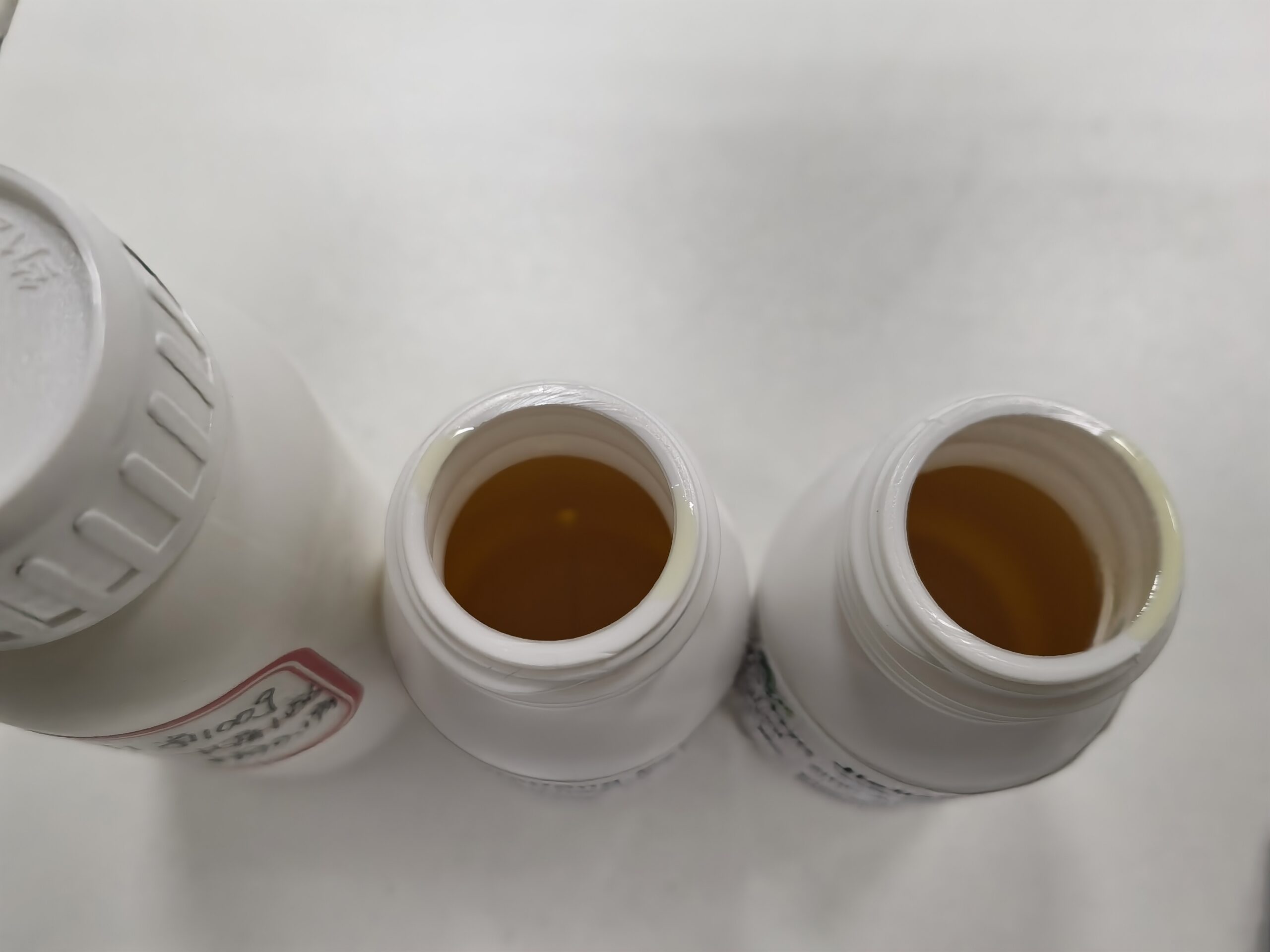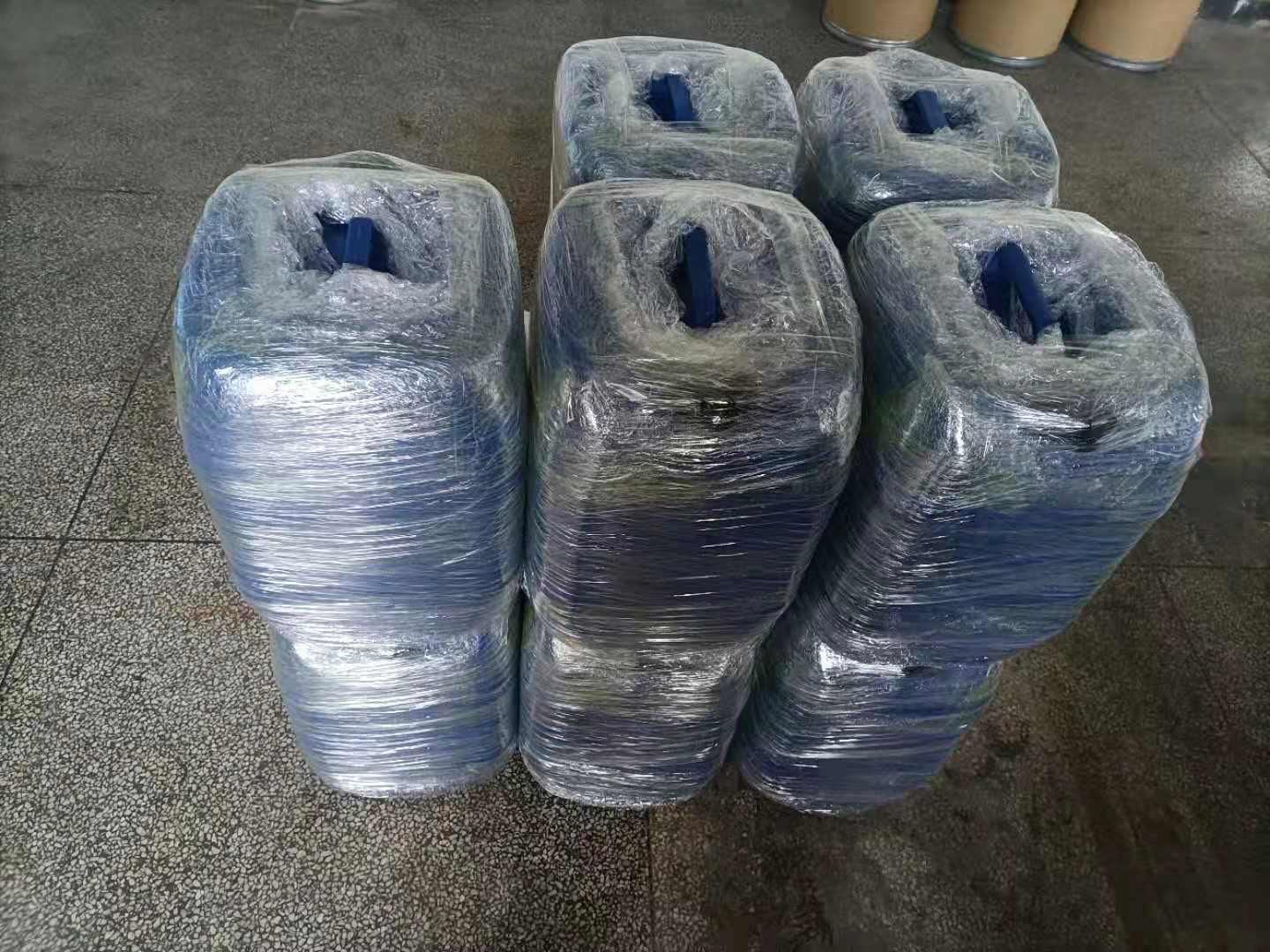Macleaya cordata, (also called as Pink Plumepoppy and Bocconia Cordata) a traditional Chinese medicine, is composed of a variety of active alkaloids such as sanguinarine and chelerythrine and is usually used as a natural additive in livestock because of its properties, including anti-microbial, anti-fungal, anti-inflammatory, and pesticidal activity.
Macleaya cordata extract is believed to be an effective natural appetiser in swine, bovine, poultry, and even fish nutrition. Macleaya cordata extract is blended from intact aerial parts and a fraction of quaternary benzo[c]phenanthridine alkaloids (QBAs), primarily sanguinarine and chelerythrine, and standardised to 1.5% w/w.
Sanguinarine (Sanguinarine chloride,CAS NO.5578-73-4,Formula: C20H14NO4.Cl) , a quaternary benzo[c] phenanthridine alkaloid, is synthesised from dihydrosanguinarine, via the activities of dihydrobenzophenanthridine oxidase . It has been shown to have beneficial effects. It is antimicrobial, antifungal, adrenolytic, sympatholytic, immunomodulatory, and anti-inflammatory.
Chelerythrine (Chelerythrine chloride, CAS NO. 3895-92-9, Mocular: C21H18NO4CL) is a quaternary benzo[c] phenanthridine alkaloid. According to studies, it mostly exhibits tumour resistant, microbe resistant, and inflammation resistant qualities. Plus, the substance is a powerful disruptor when it comes to PKC (or protein kinase C). As such, the prospective utilisation of Chelerythrine, as a form of inflammation resistance, has been the topic of much debate. Its qualities are linked to its capacity to engage with DNA and proteins. This is an enzyme that plays an important part in the control of signal transduction, cell propagation, and cell variation.
